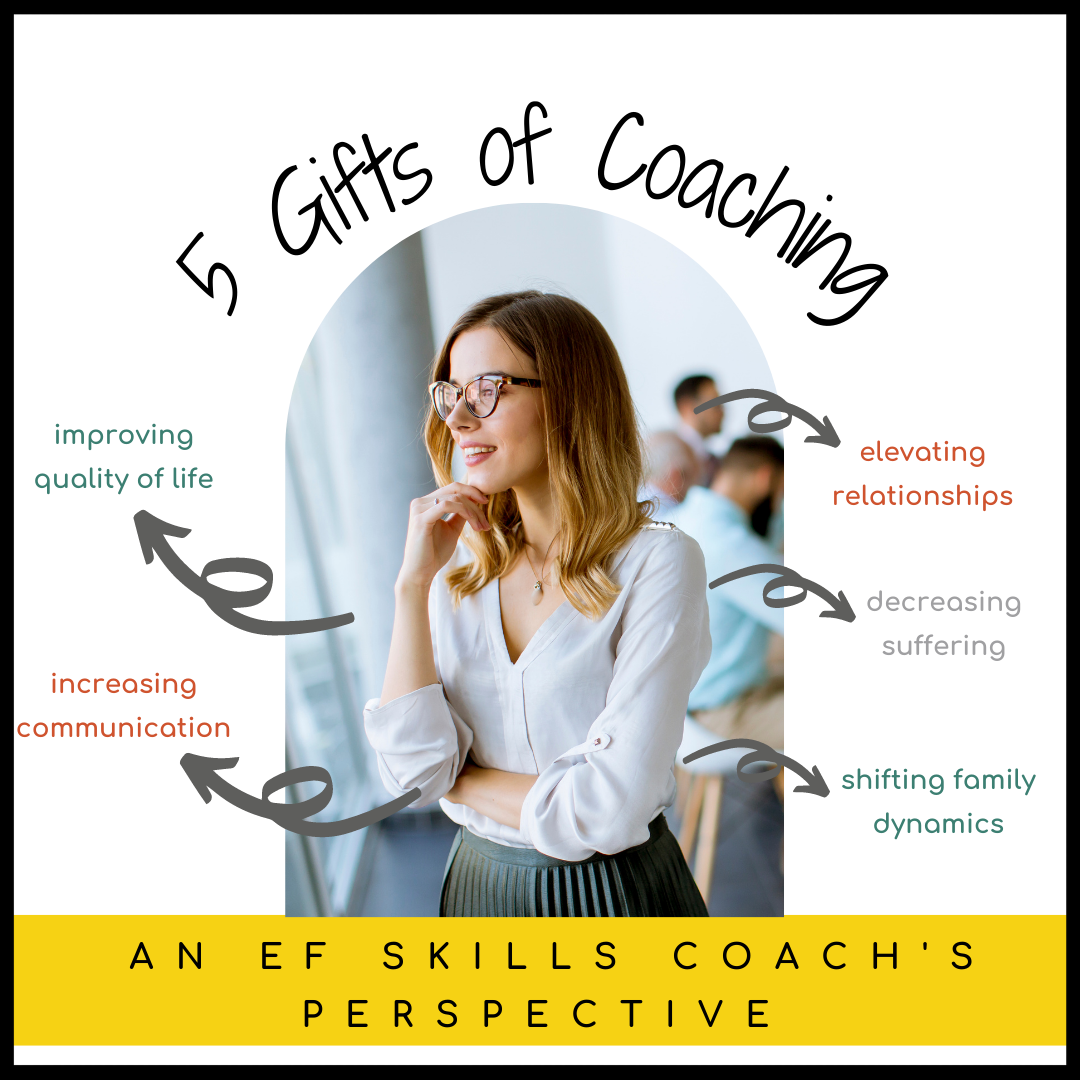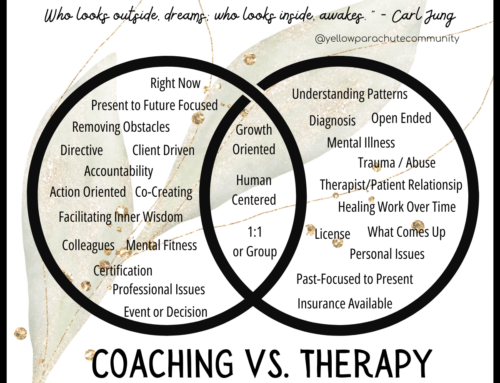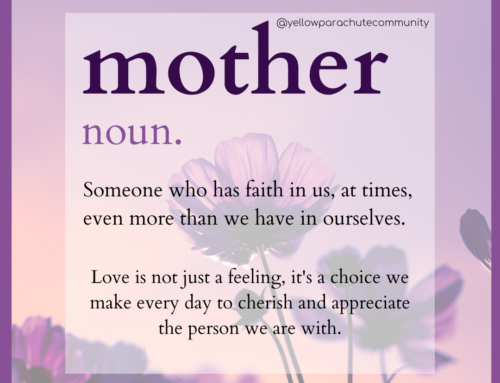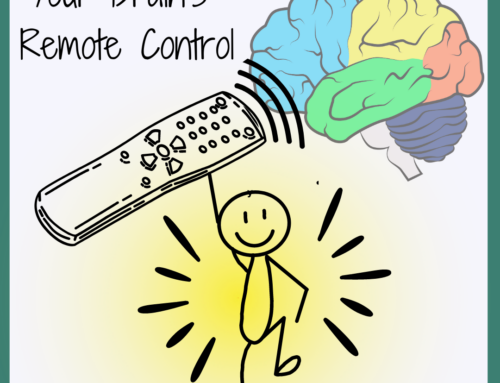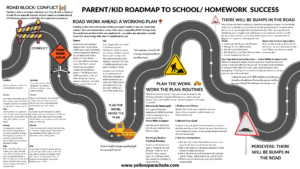– A Coach’s Perspective
Have you ever watch someone rediscover inspiration?
Recently, I asked one of our EF Coaches to share the gifts she receives (unwraps, if you like metaphors), while working with families through EF Skills Coaching.
Quick background on EF Skills Coaching for Families: Coaches meet with the student 1-2 times per week and parents 2-4 times per month. Their conversations and activities remove obstacles and create support with mindset, skills, and habits the family feels will help most. The coach guides the family based on psychology, brain research, and the study of EF skills.
I noticed an immediate change her facial expression and body language as the coach processed her answer; her eyes widened and her body relaxed. I imagined her internal replay of countless conversations she’d been shared, witnessed, and heard 2nd hand from her diligent, respected clients.
A few quiet moments later, the coach’s eyes narrowed, her body sat taller again, and a sparkle appeared as she answered.
I present to you The Five Gifts of Executive Function Coaching – a Coach’s Perspective
1. Suffering Decreasing – Families come to coaching with an immediate need. By the time they sit in front of us, they have often tried other methods of improving their circumstances without success.
By the end of the first session, both student and parents appear more animated, hopeful, and open to trying new tools and strategies to end the cycle of suffering they are experiencing. This starts with the student and flows out to the parents in a beautiful wave of regulating calm
–
2. Communication Skills Increasing – Wanting to help someone but not knowing how – what a helpless feeling this can be. Woven into the suffering I describe above, parents’ helplessness is captured in the statement, “Everything I say makes it worse.”
Through coaching, parents and students learn how to share and meet the needs that have most likely been expressing themselves in unproductive behavior patterns. “We worked through it” and a lens of resilience replace the lens of helplessness that existed before. In fact, this may be the biggest underlying driver for parents seeking coaching – to experience the feeling that they’re doing a good job in their most valuable role.
–
3. Family Dynamics Shifting – Families come to coaching with patterns they haven’t been able to change on their own; part of the suffering can be the feeling like they are banging their heads against a wall. When they begin to see a path to change, student and parents feel the inspiration to continue working toward change.
It’s an incredible gift to watch the evolution that starts with the student and ripples out to the parents, even extended family and caregivers when they are involved in EF Skills Education. I describe my family (Cara’s interjection) as putting crazy bouncing balls like the one in Men in Black into a teeny, tiny shoe box. Watch the YouTube link for a laugh.
–
4. Quality of Life Improving – This gift is closely related to the first 3; humans are made for connection and belonging. Even the most prickly of teens and stubborn of little ones craves love from their parents, believe it or not. Coaching helps release families from the dysfunctional patterns they are clinging to and see the bigger picture of how to practice what they want to change.
This is how we would describe the lived experience of growth mindset at Yellow Parachute. When families change from being stuck to their feelings of frustration in the moment and realize they can choose differently, then practice choosing, this is the evolution of their quality of life.
–
5. Relationships Elevating – You are not your actions. Read that again. How cool is that? For people with executive function deficits, the GIANT mismatch between the inside (what we want to do) and outside (what happens) is damaging to relationships. For this reason, humans with ADHD and executive function deficits often feel isolated and have an incredibly negative self image.
As families work through coaching to reduce suffering, increase communication, shift the way they experience ups and downs, and improve their overall quality of life, they elevate relationships to one another and ultimately, to themselves. This is essential for the long-lasting change we desire to help coaching clients achieve.
–
I hope this hits exactly where you need it, as you read over this list. It was certainly inspiring for me to relate our coach’s share about the ripple effect of evolution that starts with a family’s decision to enter into EF Skills Coaching together.
And about watching someone rediscover inspiration? Inspiration is compass for purpose. Look for it, and follow it.
Yours in the journey,
Cara

